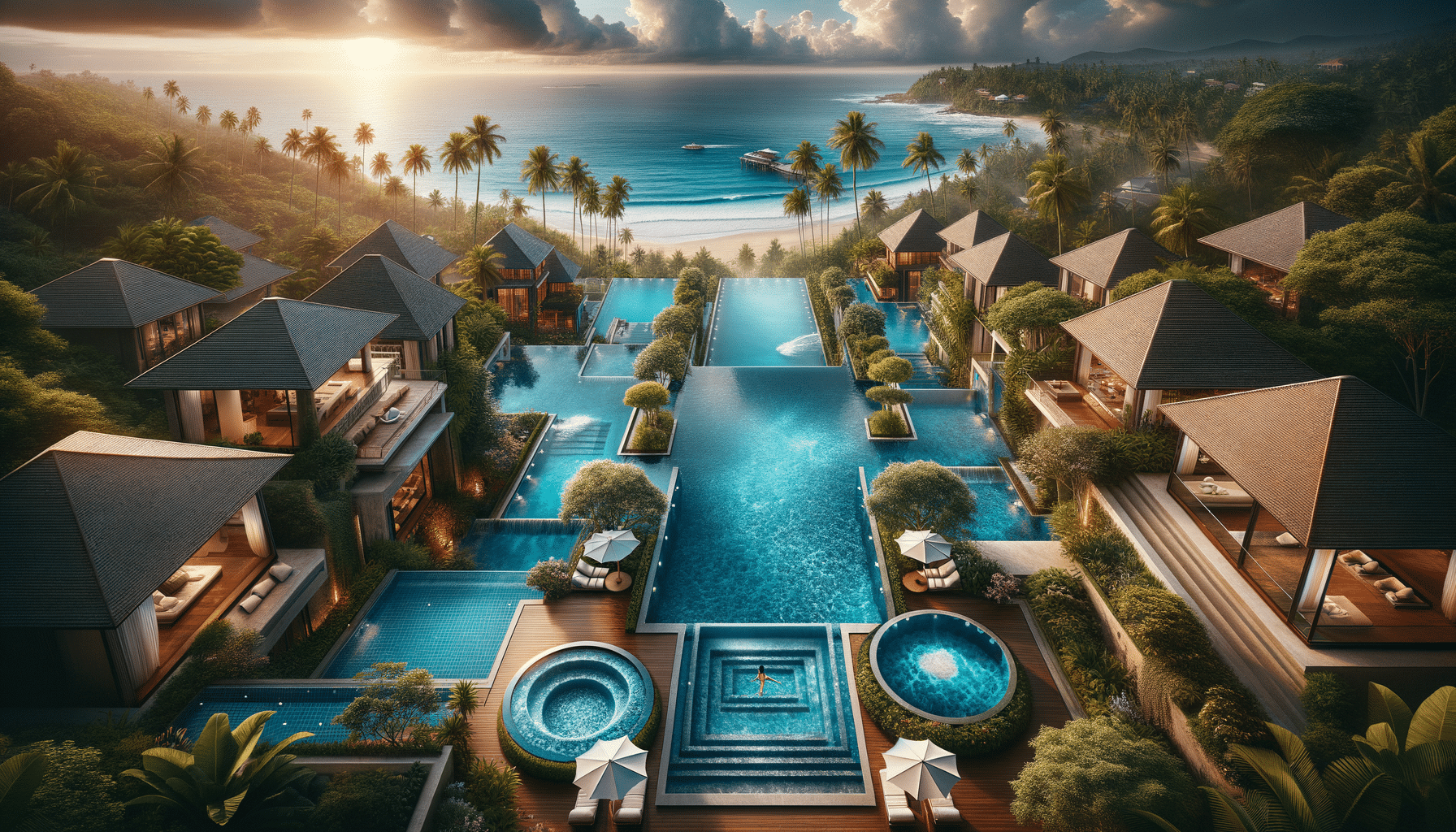
Explore the World of Outdoor Pools: A Comprehensive Guide
The Appeal of Outdoor Pools
Outdoor pools have long been a symbol of luxury and leisure, transforming backyards into personal retreats. They offer a perfect blend of relaxation and recreation, making them an attractive addition to many homes. The appeal of outdoor pools is multifaceted, ranging from their aesthetic value to their potential health benefits. For families, they provide a space for bonding and entertainment, while for others, they serve as a serene escape from the hustle and bustle of daily life.
One of the primary attractions of outdoor pools is their ability to enhance the landscape of a property. A well-designed pool can complement the natural surroundings and add significant value to a home. In terms of health benefits, swimming is an excellent form of exercise that is low-impact yet highly effective in building endurance, muscle strength, and cardiovascular fitness. Additionally, pools offer a venue for relaxation and stress relief, allowing individuals to unwind and enjoy the outdoors.
When considering the installation of an outdoor pool, it’s important to weigh the costs and benefits. While the initial investment can be substantial, the long-term enjoyment and increased property value can make it a worthwhile endeavor. Moreover, with advancements in pool technology, maintenance has become more manageable, making it easier for homeowners to maintain their pools in pristine condition.
Types of Outdoor Pools
Outdoor pools come in a variety of styles and materials, each offering unique advantages. The most common types include concrete, vinyl, and fiberglass pools. Concrete pools are highly customizable, allowing for a wide range of shapes and features. They are known for their durability and can be finished with a variety of materials, such as tile or plaster, to achieve the desired aesthetic.
Vinyl pools, on the other hand, are typically more affordable and quicker to install. They consist of a flexible liner that is fitted into a pre-constructed frame, offering a smooth surface that is gentle on the skin. However, vinyl liners may require replacement every 7 to 10 years, which is an important consideration for potential pool owners.
Fiberglass pools are pre-molded and installed as a single piece, making them a convenient option for those seeking a quick installation. They are known for their smooth surfaces and low maintenance requirements, as they are less prone to algae growth compared to other types. Additionally, fiberglass pools can be equipped with built-in features like seating and steps, enhancing their functionality and appeal.
Design Considerations for Outdoor Pools
Designing an outdoor pool involves more than just selecting a shape and size. It’s about creating a harmonious space that integrates with the surrounding environment and meets the needs of those who will use it. Several factors should be considered during the design process, including the pool’s intended use, the available space, and the overall aesthetic of the property.
For those who enjoy entertaining, a pool with an attached spa or a spacious deck area may be ideal. Families with children might prioritize safety features, such as shallow areas and secure fencing. The choice of landscaping and lighting can also significantly impact the ambiance of the pool area, transforming it into a stunning focal point, especially during evening gatherings.
Furthermore, the use of eco-friendly materials and energy-efficient technologies, such as solar heating systems or LED lighting, can enhance the sustainability of the pool. These considerations not only reduce the environmental impact but can also lead to cost savings in the long run.
Maintenance and Safety Tips
Proper maintenance is crucial to ensure the longevity and safety of an outdoor pool. Regular cleaning and chemical balancing are essential to keep the water clean and safe for swimming. It’s important to test the water’s pH and chlorine levels frequently and adjust them as needed to prevent the growth of bacteria and algae.
In addition to water quality, the physical condition of the pool should be monitored. This includes checking for cracks or leaks in the pool structure, ensuring that the filtration system is functioning correctly, and maintaining any additional features like heaters or lighting systems.
Safety is another critical aspect of pool ownership. Installing a secure fence with a locking gate can prevent unauthorized access, especially for households with young children. Pool covers can also provide an additional layer of protection when the pool is not in use. Furthermore, educating family members about pool safety rules and emergency procedures can help prevent accidents and ensure a safe swimming environment.
The Future of Outdoor Pools
The future of outdoor pools is shaped by innovations in design and technology, as well as changing consumer preferences. As more people seek environmentally friendly options, the demand for sustainable pool solutions is on the rise. This includes the use of natural filtration systems, solar heating, and energy-efficient pumps and lighting.
Advancements in smart technology are also making waves in the pool industry. Smart pools equipped with automated cleaning systems, remote monitoring, and app-controlled features offer convenience and efficiency to pool owners. These technologies not only simplify maintenance but also enhance the overall user experience.
Moreover, the trend towards creating multifunctional outdoor spaces is influencing pool design. Homeowners are increasingly looking for pools that can serve multiple purposes, from relaxation and exercise to social gatherings. This has led to the incorporation of features such as swim-up bars, integrated seating, and water features that enhance both the functionality and aesthetic appeal of outdoor pools.


